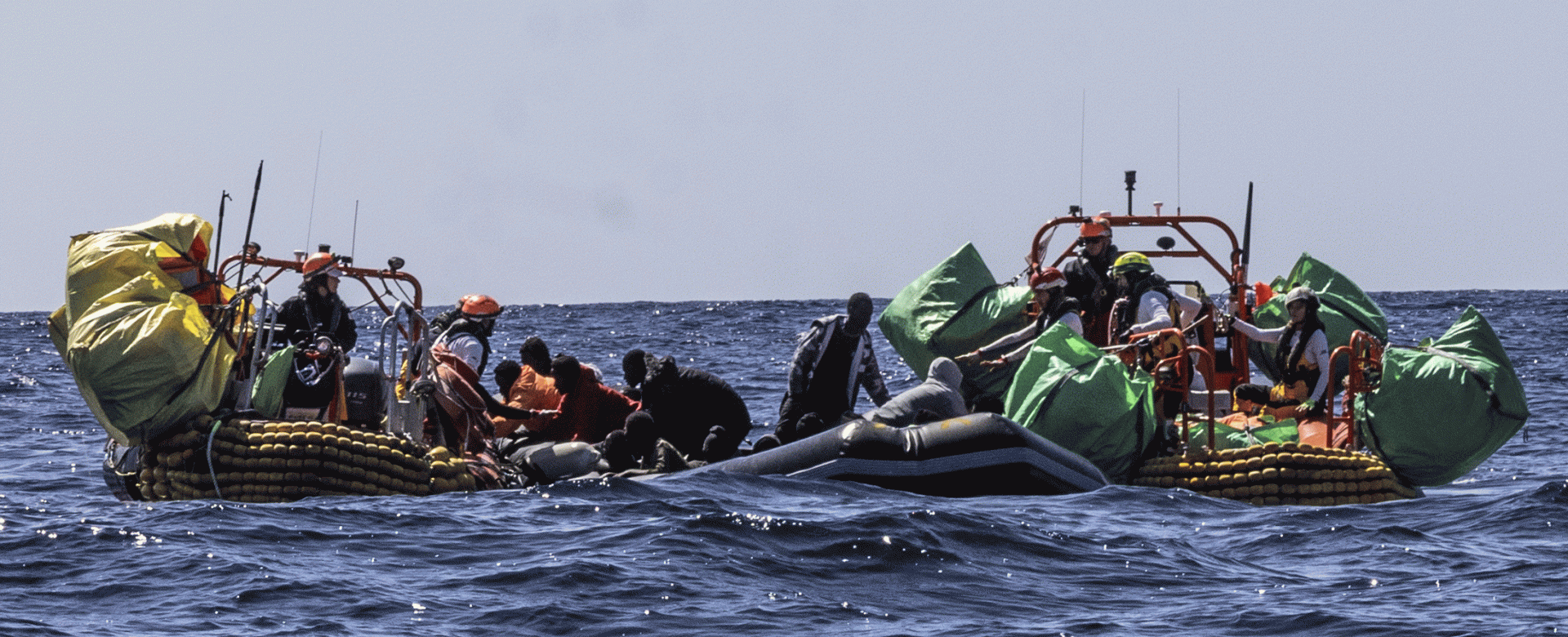
16 March 2024, Marseille, Berlin, Milano, Budapest, Geneva:
Two days after more than 60 people died on a raft in the Central Mediterranean, survivors from other rescues this week remain in limbo, far from an approved port of safety.
The teams onboard Ocean Viking, – a vessel chartered by SOS MEDITERRANEE and in partnership with the IFRC – operated four separate missions within a 48-hour period this week, rescuing 361 men, women, and children from perilous conditions at sea.
One of the rescues was of 25 survivors from a raft on which more than 60 died before help arrived. Those 25 have now been disembarked. Two were medically evacuated by helicopter (despite all efforts, one subsequently died). After urgent calls for permission to land at the nearest port of safety, the other 23 survivors were transferred at the anchorage off the Sicilian port of Catania to land for urgent medical care.
But 336 survivors from the other three rescues remain on board the Ocean Viking, which is now Heading to Ancona, much further north.
“These survivors need urgent care and that means getting them a port of safety as soon as possible” said Jennifer Vibert, IFRC Operations Manager. “Half of the survivors are very young – children or teenagers – many were found in an extremely fragile physical and mental state. The majority suffered severe dehydration and some had resorted to drinking seawater. Others sustained burns from the fuel and seawater mixed in the raft. Medical teams on board the Ocean Viking provided urgent medical care and provided critical hygiene items, food and water. But the survivors urgently need land-based care.”
“Our hearts are heavy as we acknowledge the lives lost and the suffering endured. It is essential to understand what happened from the moment the boat departed up to the discovery of the survivors to prevent such a tragedy from happening again,” stated Soazic Dupuy, SOS MEDITERRANEE’s Director of Operations.
The tragedies of this week further underscore the severity of the ongoing crisis in the Central Mediterranean Sea, the deadliest route for people on the move in the world. SOS MEDITERRANEE and IFRC remain committed to their joint life-saving mission at sea. The humanitarian needs in the region far exceed the existing response capacity, and restrictions on access to lifesaving assistance go against humanitarian principles and international maritime law.
SOS MEDITERRANEE and the IFRC urge all States to prioritize sea rescue and to uphold maritime law and human rights along Europe’s southern sea border.






